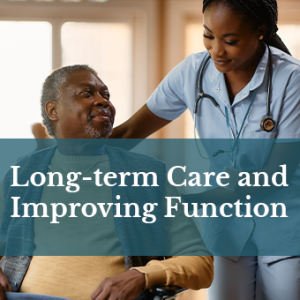Presenter(s):
Nereide Curreri, Nereide Curreri, University of Applied Sciences & Arts of Southern Switzerland (SUPSI), Switzerland
Abstract
Background/Objectives
Long-term care facilities (LTCFs) in Switzerland have been obligated, since 2019, to report medical quality indicators (MQI) to the Federal Office of Statistics. Data on six indicators in four clinical domains are collected: polypharmacy, pain (self-reported and assessor-rated), weight loss (malnutrition) and the use of physical restraints (bedrails or trunk fixation/seating that does not allow standing up). While important, these depict only a partial view of a resident’s overall quality of care and life. A multidimensional assessment of quality underpins this study’s evaluation of additional quality domains and indicators for Swiss LTCFs.
Methods
A RAND/UCLA Modified eDelphi Panel Method is being conducted to reach a consensus among experts in long-term care on additional quality indicators to recommend to the Swiss Federal Quality Commission. This incorporates several steps, beginning with a review of the literature, the results of which were discussed during interviews with national experts on LTC. These findings informed a two-round eDelphi survey. Workshops with LTCF residents and family members were also completed, the findings of which provide a user perspective to eDelphi panel participants during a virtual panel discussion between the first and second survey rounds. eDelphi panel members were asked to rate quality indicators according to their importance (relevance and value), feasibility (practical and measurable in Swiss LTCFs, and actionability within the LTCF. RAND criteria are applied to establish consensus.
Results
The first round of the eDelphi is complete, with 47 Swiss and international participants. Findings show consensus on the inclusion of quality of life and person reported indicators such as: the percentage of residents with a biography document in their chart, and the percentage of residents self-reporting satisfaction with the activities offered. Yet difficulties in measuring both emerge, and most indicators fell within a middle ground, with participants neither decisively rejecting nor strongly supporting all three rating elements. The panel discussion is scheduled, and round 2 will follow. Final results will be presented at the conference.
Discussion
This study will inform the recommendation of further medical quality indicators for Swiss LTCFs. The collective perspectives on the quality indicators will be relevant in other settings where there is interest in implementing quality indicators that offer insight into quality of care and quality of life of LTC residents.
Keywords
Long-term care, older adults, quality, quality indicators, eDelphi method
Bio(s):
Dr. in Dementia Studies, Nereide Curreri, Researcher at the Competence Centre of Ageing, University of Applied Sciences and Arts of Southern Switzerland (SUPSI), is a gerontologist with experience of direct care in the LTC field, and as a researcher has focused on health and social care integration through care pathways, integrated care at micro, meso and macro levels, and quality of life and care in different LTC settings. She is experienced in cross-national comparative multicultural projects, is embedded in the Swiss LTC networks, and accomplished in qualitative methods.

